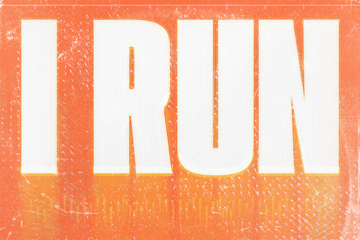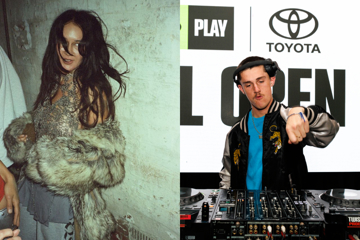Scorsese & Jagger's 'Vinyl' Is Just Another Cable Drama
Mad record label men
You know that feeling when you are the only one in a room not coked up?
Everyone thinks they are having the most essential, sparkling conversations but it is actually the most boring place in the world to be at that moment. That’s what it’s like watching the first episode of Martin Scorsese’s Vinyl.
And the characters haven’t even started vacuuming that much gak yet… there are nine more episodes in which to really get consumption levels way up.
Vinyl is, of course, the much-ballyhooed new HBO drama (screening here on Showcase, Mondays 3.30pm - express - and again at 7.30pm) brought to us by Mick Jagger and Martin Scorsese. Set in the ’70s New York music industry just as the dinosaurs were waning and the underground music scene was getting a little punk.
Don't miss a beat with our FREE daily newsletter
The first episode is directed by Scorsese and at two hours in length feels much, much longer. It’s far from being Scorsese’s worst work (hello, Shutter Island) but it ain’t no Wolf Of Wall Street or Taxi Driver. It doesn’t help that at one point in the two hours someones uses the term “mean streets” because that just serves as a reminder of Scorsese’s better days (Mean Streets, 1973).
At its heart, Vinyl is just another cable drama about a fucked-up, middle-aged white guy. Breaking Bad and Mad Men did this well. However, Vinyl falls into the latest wave of also-ran cable tales of messed-up white men (Ray Donovan, we’re talking about your sorry white ass).

Scorsese’s ‘hero’ here is Bobby Cannavale (remember when he played the gay cop in Will & Grace… such innocent times). He’s Richie Finestra. He heads up a label that’s seen better days - he’s trying to offload it to a multi-national major. He thinks Abba will be huge. He’s given up booze and drugs to raise a family. He’s gonna get involved in something bad. Badder than bribing DJs with drugs to play his records. Badder than making unsold records disappear into a river. So bad he’s gonna fall off the wagon and have some kinda epiphany at a New York Dolls gig.
Finestra’s origin story is told in a series of clumsy flashbacks that don’t really belong in a first episode - you get the feeling they were inserted as an afterthought to stop the first two hours from being completely white (his back story involves how he inadvertently exploited a black artist as his gateway into the industry).
Someone is bound to call Vinyl the music industry’s Goodfellas. And its stories of corruption in the rock biz will be familiar to anyone who has read Hit Men. But it lacks finesse and nuance. Every tale of debauchery feels fabricated amidst a show that sells itself as a true-to-life music industry tell-all. Hell, it’s even got Jaggers all over it.
This is probably why, midway through, Scorsese, through Finestra, plays a ‘get out of jail free’ card and says his recollections are “clouded by bullshit”. And, well, a lot of music industry myths are. But this feels like we are hearing the same old stories told through the same old LOUD voices.
It's a full sixteen minutes into the show before a female speaks. She is one of the nameless women the label's lads are ‘entertaining’ on their private jet. We are finally introduced to another female in Jamie Vine (Juno Temple), a bottom-rung A&R department worker who makes her way up by, guess what… fucking her first possible signing. Then there’s Finestra’s wife, played by Olivia Wilde, who is given nothing more to do than purr support or bemoan his bad behaviour.
There is a brief glimpse of hope for future episodes when (towards the back end of the two hours) two female characters are finally allowed to converse together. Here we discover that Mrs Finestra may have once had an interesting life outside of her marriage and an old friend may lure her back there. That old friend being Borgen actor Birgitte Hjort Sørensen (last seen being White Walker’d in Game Of Thrones), we can only hope that an actor of her calibre won’t have her talents wasted in a small bezzie gf role.
There are other glimmers of goodness amongst the tiresome debut. The music is great (but the performance footage is nowhere near as good as the thoughtful work done in HBO’s last music industry series, Treme), the cinematography and editing is impressive (360-degree takes and attention-grabbing extreme close-ups) and someone in the costume department has had a ball (where can we get that ‘etc’ belt buckle?).

The acting is solid. Cannavale is always good. Ray Romano impresses as label head of promotions. Jagger’s son James is perfect as the nihilistic punker Kip Stevens. And, Andrew Dice Clay chews scenery in his turn as a coke-fuelled radio exec on a three-day bender. His narcissistic portrayal of this mood-swinging maniac is someone that everyone in the music industry will recognise. And his fate is the stuff of revenge fantasy - it’s what every victim of industry bullies has surely daydreamed about.
It’s the story-telling and dialogue that fails Vinyl. The opening scene is a giant falling-off-the-bandwagon cliche. And as that scene unfolds into a scenario of fangirls screaming through the backstreets of NY to get to a New York Dolls gig, it ends unintentionally hilarious as one extra sends a rubbish bin flying. Sigh. Really? Is this why we were warned of the “bullshit” factor?
Vinyl also gives off the air of wanting to shock you with its edginess - with moments of over-the-top violence and casual drug-taking. But hey, you want some truly next-level drama involving rock star offspring doing drugs? Forget James Jagger’s nude heroin-whacking here and go straight to Bono’s daughter Eve Hewson injecting coke into Clive Owen’s cock in The Knick.
As for Vinyl episode one’s final scene (very loosely based on the real fate of a beloved NY venue), its use of maximum bulshittage shows that no one at HBO had the guts to to say to Scorsese and Jagger, “Ummm… just no!”







